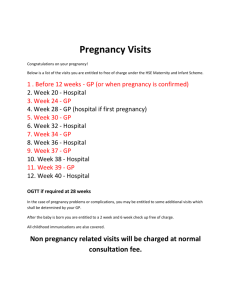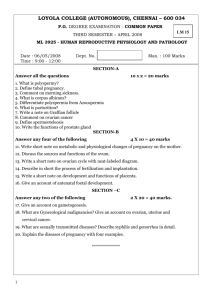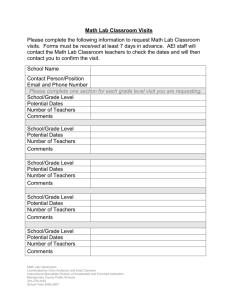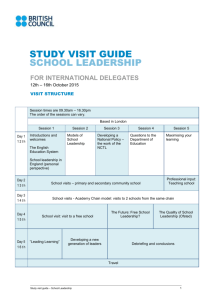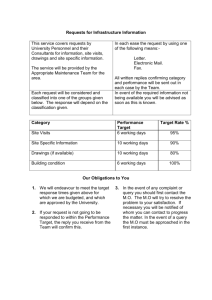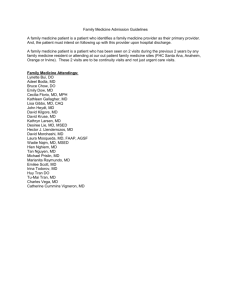click here - Oasis Academy MediacityUK
advertisement
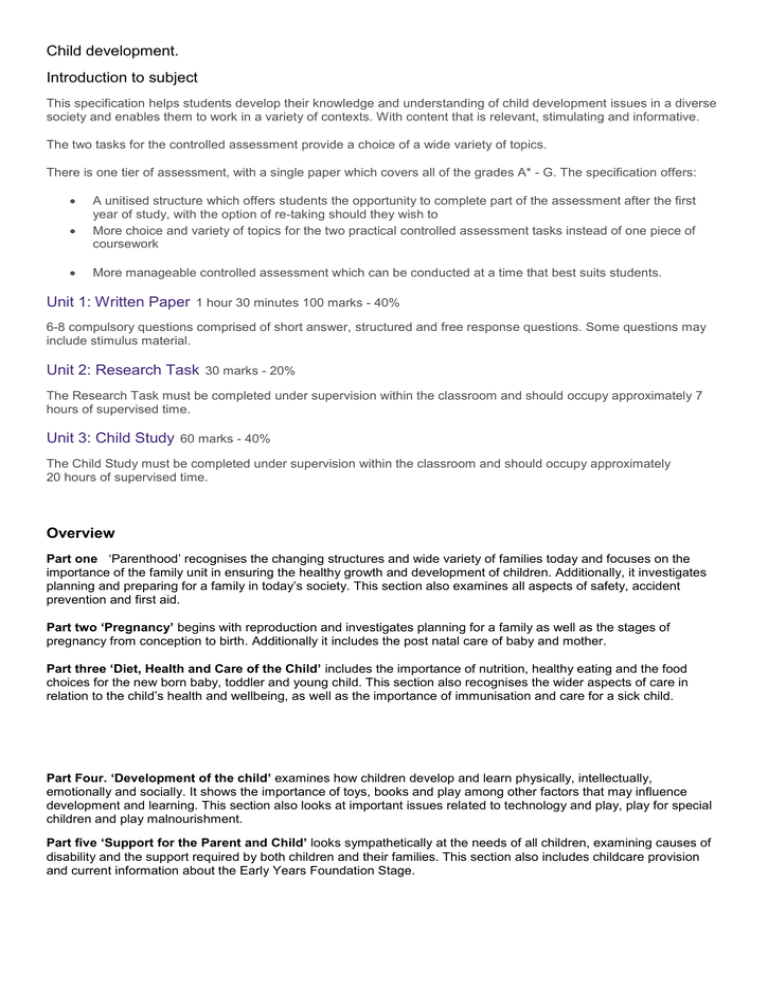
Child development. Introduction to subject This specification helps students develop their knowledge and understanding of child development issues in a diverse society and enables them to work in a variety of contexts. With content that is relevant, stimulating and informative. The two tasks for the controlled assessment provide a choice of a wide variety of topics. There is one tier of assessment, with a single paper which covers all of the grades A* - G. The specification offers: A unitised structure which offers students the opportunity to complete part of the assessment after the first year of study, with the option of re-taking should they wish to More choice and variety of topics for the two practical controlled assessment tasks instead of one piece of coursework More manageable controlled assessment which can be conducted at a time that best suits students. Unit 1: Written Paper 1 hour 30 minutes 100 marks - 40% 6-8 compulsory questions comprised of short answer, structured and free response questions. Some questions may include stimulus material. Unit 2: Research Task 30 marks - 20% The Research Task must be completed under supervision within the classroom and should occupy approximately 7 hours of supervised time. Unit 3: Child Study 60 marks - 40% The Child Study must be completed under supervision within the classroom and should occupy approximately 20 hours of supervised time. Overview Part one ‘Parenthood’ recognises the changing structures and wide variety of families today and focuses on the importance of the family unit in ensuring the healthy growth and development of children. Additionally, it investigates planning and preparing for a family in today’s society. This section also examines all aspects of safety, accident prevention and first aid. Part two ‘Pregnancy’ begins with reproduction and investigates planning for a family as well as the stages of pregnancy from conception to birth. Additionally it includes the post natal care of baby and mother. Part three ‘Diet, Health and Care of the Child’ includes the importance of nutrition, healthy eating and the food choices for the new born baby, toddler and young child. This section also recognises the wider aspects of care in relation to the child’s health and wellbeing, as well as the importance of immunisation and care for a sick child. Part Four. ‘Development of the child’ examines how children develop and learn physically, intellectually, emotionally and socially. It shows the importance of toys, books and play among other factors that may influence development and learning. This section also looks at important issues related to technology and play, play for special children and play malnourishment. Part five ‘Support for the Parent and Child’ looks sympathetically at the needs of all children, examining causes of disability and the support required by both children and their families. This section also includes childcare provision and current information about the Early Years Foundation Stage. Oasis Academy:MediaCityUK Curriculum 2014-15 Child development programme of study Year 10 Qualification: GCSE Child Development Term 1 Topics Term 2 Topics Term 3 Topics Family- Conception Ante-natal care Relationships, roles Contraception and implantation Birth plan Responsibilities Development of the foetus Family breakdown Pregnancy problems Labour pain relief and birth Pre– conceptual care Health and diet Female reproduction Year 11 Qualification: GCSE Child development Term 1 Topics Term 2 Topics Introduction to physical development – major and fine motor skills. Physical Development Introduction to child study. BAR section. Child study – questionnaire/interview to be taken on work experience. Evaluate BAR information gathered from work experience visits. Intellectual development – introduction to concepts. Emotional and social development Plan and write up child study visits Child study visits. Write up visits Evaluation and finalise study Term 3 Topics Exam preparation and revision Finalise research.
